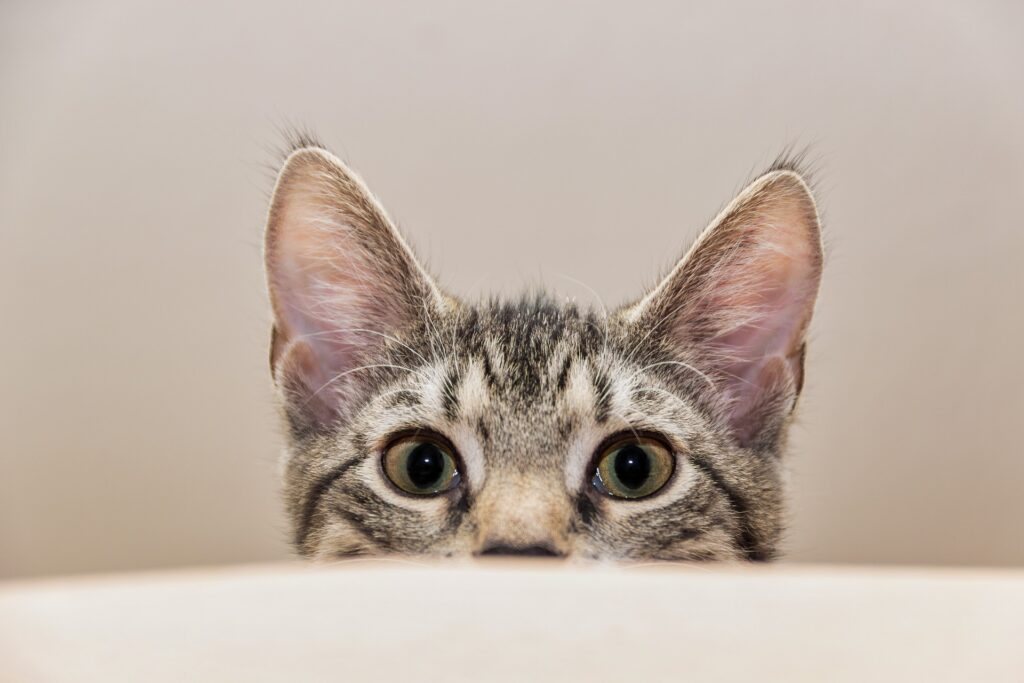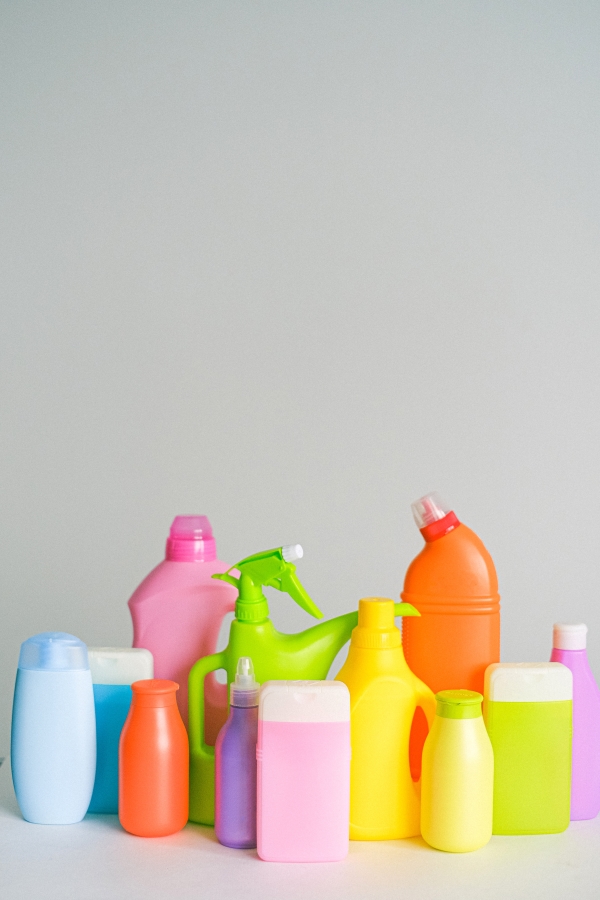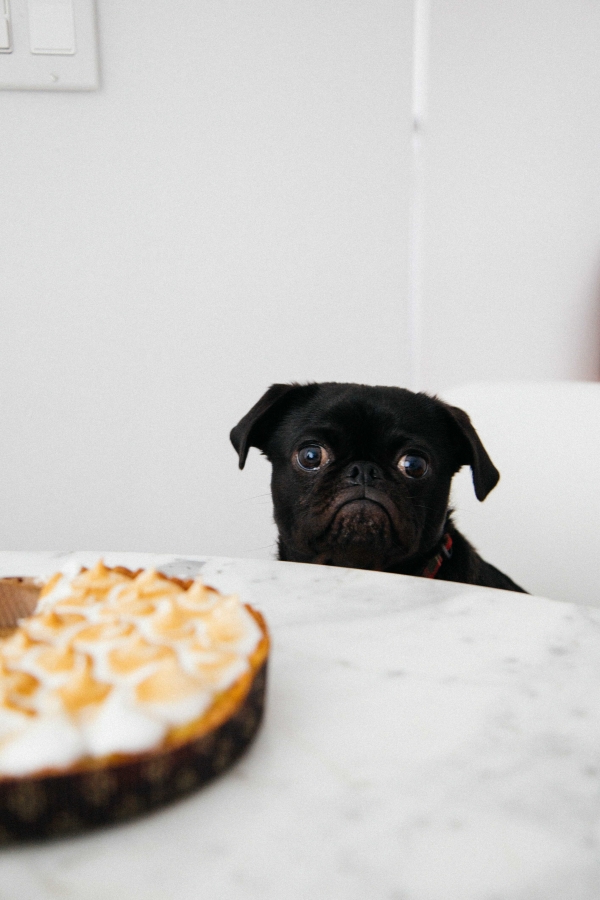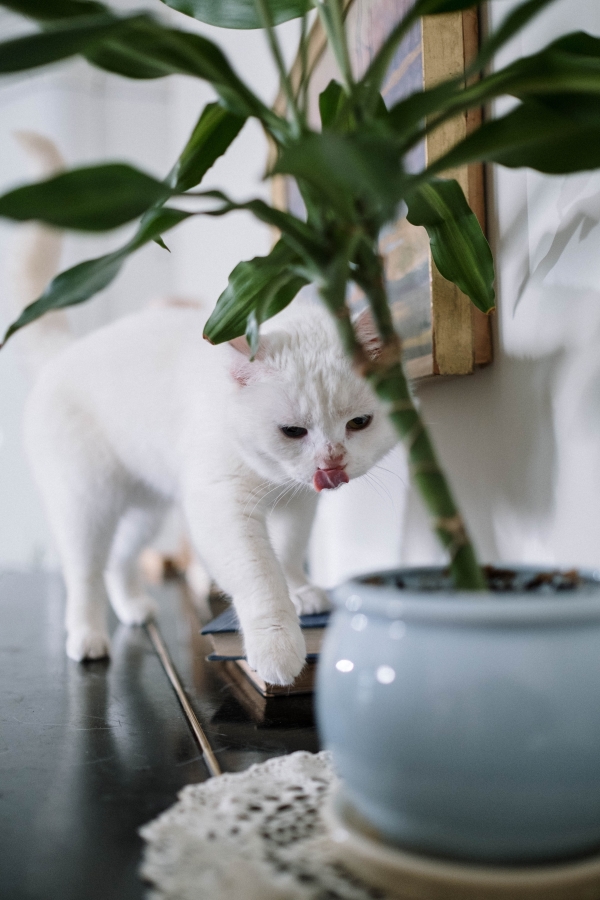What Household Items Should I Keep Away from My Pets?
Pets are like children. In search of adventure and new experiences, they will tend not to see the danger. Carefree, they want to touch everything and are always very curious. Greedy by nature, they do not distinguish between what is good or bad for their health. However, even if you are conscientious and careful, your home can often be a source of danger. We have put together a list of 10 products to keep away from your lovely animals.

Image by Gundula Vogel from Pixabay
If you have read our article on “Pet Days to Celebrate: The Top List in 2021” you should know that March is a month dedicated to the prevention of pet poisoning.
When owning an animal, there are precautions to take. Be aware that many visits to the vet are caused by poisoning due to ingestion of toxic products. It is therefore important to store certain items in secure cupboards and only use them when your pet isn’t around. Swallowing or breathing toxic substances can be dangerous for your pet and can lead to death. Ensuring that the environment in which your pets grow up is safe should be a universal feeling.
10 items dangerous to pets
We will focus on 10 common products, but this list is not exhaustive and you should use your instinct and common sense to detect any form of danger for your companion.

1. Toxic household products for your pet
Most of the time, these are corrosive products that cause chemical reactions by coming into contact with your pet’s fur or skin or by causing internal burns after ingestion. Detergents should be raised or stored. This includes your dishwashing liquid, hand soap, and laundry detergent. Keep your pet away from any of these products or the foam created by any of these products. The risks: diarrhea, vomiting, abdominal pain, breathing difficulties and even the risk of pneumonia.
Cleaners should also be kept out of the reach of your pets. Often composed of harmful chemicals, they can cause serious risks to your pet. Deodorants, drain openers, bleach and toilet cleaners should also be kept away.
With COVID-19, we tend to leave our disinfectant gels lying around. Be careful that your pets don’t go near them. They could easily want to play with it.
Be careful with garden products for your plants and patio.
In order not to end up at the vet, we advise you to put your products in cupboards, to raise them up high or to opt for non-toxic products. Indeed, some non-toxic products exist in specialized stores and if you have time and desire you can even create them yourself.
Image by Anna Shvets from Pexels
2. Food for Humans

Not all food is good for animals. Chocolate is one example which should not be given to your pet. Don’t leave your cookies lying around on the table (your cat could easily pass by) and watch out for crumbs left on the floor.
Theobromine and caffeine are intolerable substances in our animal friends. When ingested, your pet may start shaking, may have palpitations, abnormal blood pressure, and stomach upset. In severe cases, consuming theses foods can also result in death, therefore, this is not something to be taken lightly and remember to clean up well after eating.
Avocado, grapes and raisins should also be avoided in your dog’s diet, as should alcohol, Xylitol, garlic and macadamia nuts.
3. Pest traps and insecticides
Do you want to get rid of insects or pests? Pay attention to the traps you install. Your pets may want to play with them or be attracted by the smell. The modern bait that we can find on the market uses few chemical and toxic products. However, be sure to read the instructions and restrictions on the packaging. Products to be avoided include substances such as methyl.
Mouse traps are also to be avoided because the food in them may attract your pet. Rat poisoningconsists of Cholecalciferol, and anticoagulants, which can cause nerve damage and blood disorders.
Image by Charles Deluvio from Unsplash
4. Medicines for your pet but also yours
Medicines for humans should never be given to an animal. Consider them all as toxic! Acetaminophen and ibuprofen are very good examples. They should not be given to your pet if it is not feeling well.
It is imperative to always consult your vet.
Don’t leave your pet’s medication lying around. Some medications may be flavored to make them easier to swallow. However, they may be perceived by your pet as a treat who could consume an excessive dose by mistake.
Also remember not to mix cat medications with dog medications if you have more than one pet. Professional advice is essential to avoid mistakes and missteps that could result in a trip to the animal hospital!

5. Plants
Stomach problems often cause your pets to chew plants. It is necessary that you check the plants and flowers in your garden and your home to determine if they may be toxic to your pet.
Dogs, for example, cannot tolerate chrysanthemums, yew, amaryllis, cyclamen, rhododendrons, oleanders and narcissus and hyacinth bulbs.
For cats here are some plants to avoid: ficus, Philodendron or Monstera, lily of the valley, cyclamen, aloe, Yucca, Sansevieria…
6. Fertilizers
Fertilizers are potentially dangerous for your animals. They come in many kinds and forms. Depending on the nature of the fertilizer, the toxicity can vary. Choose them well and try to go for as natural as possible. Avoid products composed of phosphorus, potassium and nitrogen, as well as additives such as herbicides and insecticides.
Organic fertilizers are not necessarily good for your pet’s health. Always check the packaging or ask for information from specialized professionals.
Image by cottonbro from Pexels
7. Heavy metals
Care should be taken with lead and Zinc, which can have negative effects on your pet. Pick up your pennies when they fall on the floor and don’t leave your coins lying around.
Ingesting heavy metals can cause stomach aches and even lead to anemia.
Also be careful when restoring old buildings and houses, lead could easily be ingested by your pet.
8. Essential oils
Although they have many virtues, essential oils are not harmless. They are powerful active substances that must be kept away from your animals. Essential oils can cause digestive and nervous damage and can cause burns if touched.
9. Nicotine, tobacco and other drugs
Nicotine is as harmful to humans as it is to animals. Do not smoke in front of your pet and avoid leaving a pack of cigarettes on your coffee table. If ingestion or inhalation of high doses occurs, your pet may have respiratory or even cardiac problems.
10. Some cosmetic products
Cosmetic products for humans contain many substances that are often harmful to your pet. Keep your deodorant, varnish, solvents and perfumes away.
Do not brush your pet’s teeth with conventional toothpaste. While fluoride is good for our teeth, it is absolutely not good for our beloved pets. Fluoride is toxic and could be accidentally swallowed by your pet.
My pet has been in contact with an item on this list, what should I do?
If you notice symptoms (red skin, loss of appetite, fever, severe salivation, vomiting, difficulty breathing, joint and abdominal pain, sudden fatigue, etc.), contact a vet immediately. They will tell you what to do. Any information helping to identify the source of the poisoning should be given to the professional contacted.
Do not try to make your pet vomit, give it water or medication, which would only make the situation worse.
Loving your pet also means protecting it from danger. The house is their main playground, protect your pet from these common dangers by taking care to secure them away out of reach.
This entry was posted in Uncategorised